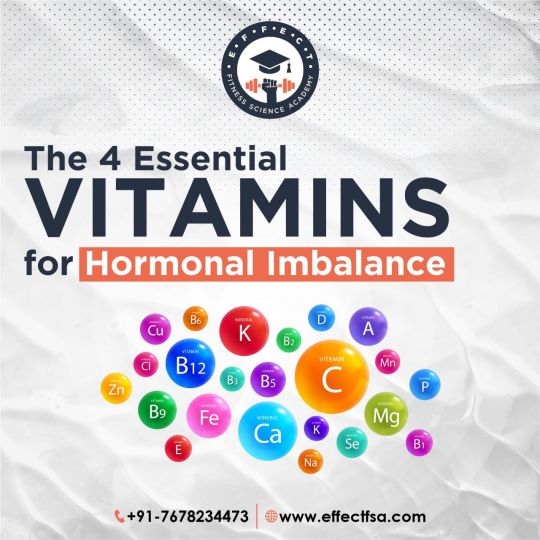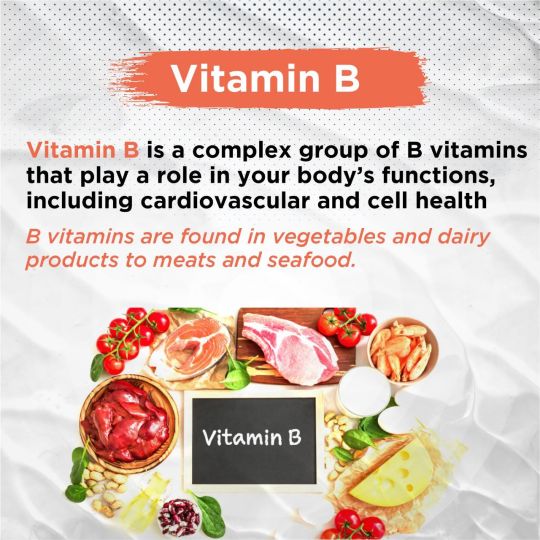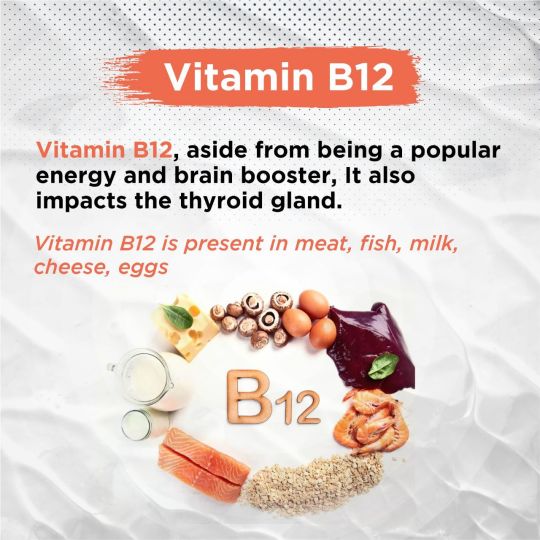#HormonalImbalance
Text

Looking for a natural way to balance your hormones?
Fenugreek tea might be your answer!
Fenugreek tea is known to be beneficial in balancing various hormones in the body.
Here are four hormones that fenugreek tea can help balance:
1. Estrogen: Fenugreek contains phytoestrogens that mimic the effects of estrogen in the body, making it helpful in balancing estrogen levels. This can be especially beneficial for women going through menopause or with hormonal imbalances.
2. Insulin: Fenugreek contains soluble fiber that can slow down the absorption of carbohydrates in the body, which helps regulate blood sugar levels. This can be particularly useful for those with diabetes or insulin resistance.
3. Prolactin: Fenugreek has been shown to increase milk production in nursing mothers, which is due to its ability to stimulate the hormone prolactin. This hormone is responsible for milk production in the body.
4. Testosterone: Fenugreek contains compounds that may help boost testosterone levels in men, which can help with muscle growth and sexual function. It is also be helpful for women with low testosterone to boost testosterone to improve muscle mass and libido. Fenugreek seeds also contain a compound called 4-hydroxyisoleucine, which has been shown to inhibit the activity of 5-alpha reductase, an enzyme that is involved in the conversion of testosterone to DHT. By inhibiting the activity of 5-alpha reductase, fenugreek seeds may help to reduce the levels of DHT in the body, which in turn may help to prevent hair loss and promote hair growth.
Overall, fenugreek tea can be a natural and effective way to balance hormones in the body.
So why not give it a try and see how it can benefit you?
#manjiriayurveda#hormonalimbalance#lowtestosterone#menopause#ayurvedaremedies#ayurvedicfood#foodasmedicine#FenugreekTea#HormoneBalance#Estrogen#Insulin#Prolactin#Testosterone#NaturalRemedies#HealthyLiving#wellness#gut health#holistic food#holistichealth#holistic healing#ayurveda#ayurveda canada#digestion#healthy lifestyle#healthyfood#ayurveda near me
6 notes
·
View notes
Text
Problems Women May Face Due to PCOS | livefitforever
Polycystic Ovary Syndrome (PCOS) can lead to various problems for women. One of the most common issues is irregular menstrual cycles, which can make it challenging to predict ovulation and plan for pregnancy. PCOS is also associated with infertility, affecting a woman's ability to conceive. Hormonal imbalances caused by PCOS can lead to symptoms like acne, unwanted hair growth, and hair loss. Additionally, women with PCOS are at a higher risk of developing type 2 diabetes and high blood pressure. Managing PCOS through lifestyle changes, medication, and regular monitoring can help mitigate these problems and improve overall health.
#pcos#polycysticovarysyndrome#womenhealth#irregularperiods#infertility#hormonalimbalance#acne#unwantedhairgrowth#hairloss#type2diabetes#highbloodpressure#lifestylemanagement#livefitforever
0 notes
Text
These gummies are accurate formulated
to provide a holistic solution
for individuals seeking
to enhance energy levels,
promote weight loss,
and maintain hormonal balance.

#healthwellness#testosteronegummies#hairlossprevention#sawpalmettoberry#ayurvedicmedicine#hormonalimbalance#calciumsupplement#appetitesuppressant#calciumsupplements#zinc#restfulsleep#healthandfitness#menstrualcramps#naturalingredients#withaniasomnifera#femalereproductive#testosteronecream#naturaltestosterone#testosteronesupport#anabolicsupplements#hormonereplacement#testosteroneandhairloss#hormonesupplements#testosteronesupplement#magnesiumsupplement#energysupplementsformen#menshealthsupplements#testosteroneboosterformen#testosteroneboostingsupplements#hormonebalancesupplements
1 note
·
View note
Text
Natural Ways to Correct Hormonal Imbalances

Your body relies on hormones or chemical messengers to regulate your overall well-being, affecting everything from mood to weight. Hormonal imbalances can stem from various factors like lifestyle, age, and diet. However, you can restore your general health and well-being by learning natural ways to balance your hormones read more here
0 notes
Text
Best Medicine for Irregular Periods- PMS
PMS, or Premenstrual Syndrome, refers to a combination of physical and emotional symptoms that many people experience before their menstrual period. These symptoms typically occur in the days leading up to menstruation and can include mood swings, irritability, bloating, breast tenderness, fatigue, and changes in appetite or sleep patterns. PMS symptoms vary in severity and can interfere with daily activities and quality of life for some females.
Visit Now - https://store.avedaayur.com/collections/female-health
Call Now - 7743002520
#PeriodPositivity#MenstrualHealth#PeriodAwareness#MenstruationMatters#HormonalHealth#CycleAwareness#WomenHealth#EndPeriodStigma#PeriodPain#HormonalImbalance#PeriodProblems#PMSAwareness#FeminineHygiene#MenstrualCycle#WomenWellness#NormalizePeriods#lifeaveda#femalehealth#shatavari
0 notes
Link
#BHRT#BioidenticalHormoneReplacementTherapy#Fertility#FSH#Gonadotropin-releasinghormone#HormonalImbalance#Hormones#LH#MaleInfertility#testosterone
0 notes
Text
youtube
Revolutionary Tummy-Flattening Formula: Just 1 tsp Post-Dinner | Unlock Your Metabolic Potential: The 60-Second Boost You Need!
#howtobalancehormones#hormonalimbalance#hormonalimbalanceinwomen#balancehormonesnaturally#over30hormonesolutionreview#hormonebalance#fatburninghormones#howtofixhormonalimbalance#hormonefix#quarantineweightloss#quarantineweightlossdietplan#femalehormoneimbalance#lowcarbhighfatdiet#lowcarbhighfat#metabolismboosting#dietingforweightloss#balancinghormonesin women#hormonal imbalance treatment#over 30 hormone solution reviews#natural ways to balance hormones#how to increase growth hormone#increase fat burning hormones#activate fat burning hormones#hormonal balance#hormone balancing diet#supplements to balance hormones#hormone balancing foods#how to fix hormone imbalance#Youtube
0 notes
Text
Symptoms of Hormonal Imbalance

Don't ignore the signs! 🚦
When it comes to hormonal imbalance, early intervention is key. If you experience persistent symptoms like mood swings, fatigue, or irregular periods, immediate treatment might be necessary. Don't wait, prioritize your health!
Learn more>> https://www.sriramakrishnahospital.com/
#hormonehealth#hormonalimbalance#endocrinology#healthcare#sriramakrishnahospital#coimbatore#hospitalincoimbatore#multispecialityhospital#healthandwellness#medical#bookyourappointment
0 notes
Video
youtube
What Causes Night Sweats?
Night sweats, also known as sleep hyperhidrosis, are episodes of excessive sweating during sleep that can disturb one's rest and potentially indicate an underlying medical condition. Several factors can contribute to the occurrence of night sweats, including hormonal imbalances, menopause, infections such as tuberculosis or HIV, medications like antidepressants or diabetes drugs, and certain forms of cancer. These sweating episodes can be triggered by the body's attempt to regulate body temperature, resulting in damp bedding, discomfort, and disrupted sleep patterns. Identifying and addressing the root causes of night sweats, through thorough medical evaluation and appropriate treatment, is crucial to ensuring restful nights and overall well-being.
#youtube#shorts#short#shortvideo#sweat#hyperhidrosis#nightsweats#sleep#sleeping#sweats#menopause#hormones#hormonalimbalance#bodytemperature#hotflashes#sweating
0 notes
Text
Hormonal imbalance is a common health issue that affects many women worldwide. It occurs when there is an abnormality in the production, regulation, or function of hormones in the female body. to know more kindly click the link
0 notes
Link
👋 Estrogen detox symptoms can be confusing and uncomfortable. It's important to understand what they are and how to manage them. 👩⚕️ Estrogen dominance can cause a range of health problems, including weight gain, mood swings, and fatigue. Detoxing from excess estrogen can help alleviate these symptoms. 🌿 Natural remedies, such as cruciferous vegetables and herbal supplements, can support the body's detoxification process. However, it's important to work with a healthcare professional to ensure safe and effective detoxification.1. Understanding Estrogen Detoxification: What It Is and Why It MattersEstrogen detoxification is the process of removing excess estrogen from the body. It matters because high levels of estrogen can lead to health issues like breast cancer and infertility. Estrogen detoxification occurs in the liver through two phases. Phase 1 converts estrogen to a less harmful form, while phase 2 eliminates it from the body. Cruciferous vegetables like broccoli and kale contain compounds that support estrogen detoxification. Regular exercise and reducing alcohol consumption can also help with estrogen detoxification. Supplements like DIM and calcium D-glucarate can aid in estrogen detoxification. Estrogen detoxification is important for both men and women. Men also produce estrogen, and excess levels can lead to health issues like prostate cancer and gynecomastia. Estrogen detoxification can be impaired by certain medications, environmental toxins, and genetic factors. It's important to work with a healthcare provider to address any potential issues. Overall, understanding estrogen detoxification is crucial for maintaining optimal health and preventing serious health issues. 🌟2. Common Symptoms of Estrogen Detox: How to Recognize ThemEstrogen detox is a process that helps to eliminate excess estrogen from the body. Here are some common symptoms of estrogen detox: Headaches Acne Mood swings Hot flashes Irregular periods These symptoms are usually temporary and can last from a few days to a few weeks. It's important to recognize them so that you can take steps to manage them. Some ways to manage these symptoms include: Drinking plenty of water Eating a healthy diet Exercising regularly Getting enough sleep Taking supplements like magnesium and vitamin B6 It's important to note that if you experience severe symptoms or if they persist for a long time, you should consult a healthcare professional. Overall, estrogen detox can be a challenging process, but recognizing the symptoms and taking steps to manage them can help make it easier. 🌟Remember to take care of your body during this process!🌟3. The Science Behind Estrogen Detoxification: What Happens in Your BodyEstrogen detoxification is a natural process in the body that eliminates excess estrogen. Estrogen is metabolized in the liver and excreted through the urine and feces. The process involves two phases: Phase 1 breaks down estrogen, and Phase 2 eliminates it. Cruciferous vegetables, such as broccoli and kale, can enhance estrogen detoxification. Other factors that can affect estrogen detoxification include genetics, stress, and gut health. Estrogen dominance can occur when the body cannot eliminate excess estrogen, leading to health issues. Regular exercise, reducing alcohol intake, and avoiding synthetic hormones can improve estrogen detoxification. Consult with a healthcare provider before making any changes to your diet or lifestyle. 🩺4. Natural Ways to Support Estrogen Detox: Diet, Lifestyle, and SupplementsSupport estrogen detox naturally through diet, lifestyle, and supplements. Diet: Eat cruciferous veggies like broccoli, kale, and cauliflower. Include fiber-rich foods like flaxseeds, chia seeds, and berries. Consume healthy fats like avocados, nuts, and olive oil. Lifestyle: Exercise regularly to sweat out toxins. Reduce stress through meditation or yoga. Avoid alcohol and smoking. Supplements: Take DIM supplements to support estrogen metabolism. Use milk thistle to support liver function. Consider probiotics to support gut health. 🥦🍓🥑💪🧘♀️🚭💊5. When to Seek Medical Help for Estrogen Detox SymptomsIt's important to know . Here are some signs to look out for: Severe symptoms: If you experience severe symptoms such as chest pain, difficulty breathing, or severe headaches, seek medical attention immediately. Persistent symptoms: If your symptoms persist for more than a few days, it's time to see a doctor. Worsening symptoms: If your symptoms are getting worse instead of better, it's time to seek medical help. If you're experiencing any of these symptoms, don't hesitate to seek medical attention. Your doctor can help you manage your symptoms and ensure that you're safe. It's also important to keep in mind that some people may be more at risk for experiencing severe estrogen detox symptoms. These include people with pre-existing medical conditions, those with a history of drug or alcohol abuse, and pregnant women. If you fall into one of these categories, it's especially important to seek medical help if you experience any symptoms. Remember, it's always better to be safe than sorry. If you're unsure whether or not you should seek medical attention, it's always best to err on the side of caution and consult with a healthcare professional. 👀 Keep an eye out for these symptoms and don't hesitate to seek medical help if needed. Your health is important!6. The Role of Hormone Testing in Estrogen DetoxificationHormone testing is crucial in identifying imbalances that can hinder estrogen detoxification. Testing can reveal excess estrogen levels, which can lead to cancer and other health issues. It can also identify deficiencies in estrogen metabolites, which can cause hormonal imbalances. Testing can guide personalized detoxification protocols, including dietary changes, supplements, and lifestyle modifications. It can also help monitor the effectiveness of the protocol and adjust it accordingly. Hormone testing can be done through blood, urine, or saliva samples. Interpretation of hormone testing results should be done by a qualified healthcare practitioner. They can assess the results and provide recommendations based on the individual's unique needs. Testing should be done periodically to monitor progress and adjust the protocol as needed. Estrogen detoxification is crucial for overall health and well-being. Testing can help identify imbalances and guide personalized protocols for optimal detoxification. Regular monitoring can ensure progress and continued success. 👩⚕️🔬💊7. Tips for a Successful Estrogen Detox: What to Expect and How to PrepareBefore starting an estrogen detox, consult with a healthcare professional. Here are some tips to help you prepare: Eliminate processed foods, alcohol, and caffeine from your diet. Exercise regularly to help your body eliminate toxins. Drink plenty of water to stay hydrated. Consider taking supplements like magnesium and B vitamins. During an estrogen detox, you may experience some side effects: Headaches, fatigue, and mood swings are common. Your menstrual cycle may be affected. You may experience hot flashes or night sweats. However, the benefits of an estrogen detox can include: Reduced risk of breast cancer and other hormone-related cancers. Improved mood, energy, and mental clarity. Reduced PMS symptoms. Remember to be patient and kind to yourself during the detox process. It may take time to see results, but the benefits are worth it. 🌟 In conclusion, estrogen detox symptoms can be challenging, but they are a sign that your body is healing. It's important to listen to your body and take care of yourself during this process. Remember to stay hydrated, eat a balanced diet, and get enough rest. If you're experiencing severe symptoms or have concerns, consult with a healthcare professional. They can provide guidance and support to help you through the detox process. Don't be afraid to ask for help. Overall, an estrogen detox can be a positive step towards improving your health and well-being. Embrace the journey and trust that your body knows what it needs to heal. 🌿💪🏼 https://symptomfinder.com/estrogen-detox-symptoms-a-guide/?_unique_id=6493635b14be9
#Uncategorised#Detoxificationprocess#Estrogendetox#Hormonalimbalance#Hormoneregulation#naturalremedies#aiomatic_0
0 notes
Text
Why is PCOS so common in Indian Woman | livefitforever
Polycystic ovary syndrome (PCOS) is common due to a combination of genetic, hormonal, and lifestyle factors. Genetics play a strong role, with a family history of PCOS increasing the likelihood of developing the condition. Insulin resistance, hormonal imbalances, and lifestyle factors such as diet and exercise also contribute. Environmental factors and stress may further influence the development or exacerbation of PCOS symptoms.
#PCOS#PolycysticOvarySyndrome#Genetics#HormonalImbalance#InsulinResistance#LifestyleFactors#EnvironmentalFactors#Stress
0 notes
Text
When hormone levels in the bloodstream go beyond or below typical ranges, female hormonal imbalance results. The endocrine system's glands generate hormones, which are chemicals that instruct your cells, tissues, and organs what to do. Among the numerous vital bodily processes that hormones influence is mood.
0 notes
Text

Hormonal imbalance can cause a list of changes in your body, from differences in menstrual cycles and acne to hormonal disorders like PCOS or even infertility.
To avoid these and get a perfect treatment, visit us at https://www.bsdhospitals.com/.
#baggusarojinidevihospital#hospitalsinsrikakulam#srikakulam#hormonalimbalance#pcosawareness#periodproblems#fertility#infertility#pregnancy#health#weightloss#depression#anxiety#womenshealth#guthealth#pms#tired
0 notes
Text
What could be the reasons for experiencing bleeding before the expected period?
Is it common to experience spotting before your period?
Spotting before your period is a common occurrence for many women. Around 1 in 10 women may experience spotting a few days before their period begins. This light bleeding typically lasts for 1 to 2 days and is usually not a cause for concern. However, if you notice spotting lasting longer than four days or if it becomes heavy enough to require a tampon, it is advisable to consult with your healthcare provider.
Tracking your menstrual cycle using an app or a written record can help you understand what to expect during your cycle and determine what is normal for you. Spotting before your period can have various causes, including hormonal changes, fluctuations in estrogen and progesterone levels, or even implantation bleeding in some cases.
It's important to remember that every woman's menstrual cycle is unique, and spotting before your period may differ from person to person. If you have any concerns or if the spotting is accompanied by unusual symptoms or severe pain, it is best to seek medical advice for further evaluation and reassurance.
Common Causes of Spotting Before a Period
Ovulation: Spotting may occur during ovulation when the ovaries release an egg. It can be accompanied by symptoms like breast tenderness, bloating, and increased cervical discharge.
Hormonal Changes: Fluctuations in estrogen and progesterone levels during the menstrual cycle can cause an imbalance and lead to spotting between periods.
Stress: High levels of stress and anxiety can disrupt hormonal balance and result in irregular bleeding, including spotting between periods.
Uterine Fibroids: These noncancerous tumors can cause heavy periods and spotting due to their impact on the uterus.
Endometriosis: When endometrial tissue grows outside the uterus, it can cause prolonged periods or spotting between periods.
Urinary Tract Infections (UTIs): UTIs can cause inflammation and infection in the urinary tract, leading to spotting along with symptoms like burning during urination and increased frequency of urination.
Birth Control Pills: Starting or missing birth control pills can cause breakthrough bleeding or spotting as the body adjusts to the hormones. It's important to follow the prescribed pill schedule and consult a doctor if spotting persists.
Sexually Transmitted Infections (STIs): Some STIs, such as Chlamydia, can cause spotting between periods. Regular STI testing is crucial for sexually active individuals.
Pregnancy: Spotting during early pregnancy, known as implantation bleeding, can occur when the fertilized egg attaches to the uterine wall. It can also be a symptom of hormonal changes or an ectopic pregnancy.
If you experience prolonged or heavy bleeding, severe pain, or have concerns about your menstrual cycle, it is recommended to consult with a healthcare professional for further evaluation and guidance.
When to Seek Medical Attention
If you experience spotting between periods and any of the following circumstances apply, it is recommended to consult a healthcare professional:
1. Bleeding occurring more frequently than once a month.
2. Pregnancy: If you are pregnant and notice spotting.
3. Lower abdominal pain accompanying the spotting.
4. Heavy bleeding that resembles a regular flow period.
5. Missed two or more birth control pills.
Tips for Managing Spotting:
1. Take your birth control pill at the same time every day to maintain hormonal balance.
2. Reduce stress levels through relaxation techniques or activities you enjoy.
3. Follow a healthy diet rich in nutrients.
4. Prioritize sufficient sleep each night.
5. Maintain a healthy weight through regular exercise and balanced eating.
6. Consider wearing leak-proof underwear for added protection against spotting.
Remember, while these tips may help manage spotting, it is important to consult a healthcare professional for a proper diagnosis and personalized advice based on your specific situation.
Proof Leakproof Underwear: Stay Protected and Confident
No more surprises with Beautikini's Leakproof Underwear. Say goodbye to the hassle of panty liners and hello to all-day comfort and protection. Our leakproof underwear is specially designed to handle spotting in between your periods, providing you with peace of mind.
Available in a range of absorbencies, our leakproof underwear ensures you have the right level of protection for your needs. Our "super-light absorbency" option offers seamless and discreet protection under any outfit. With the capacity to hold up to 1 light tampon or panty liner, you can trust that our leakproof underwear has got you covered.
Whether you experience bladder leaks or spotting, our leakproof underwear is the perfect solution. Stay confident and worry-free throughout the day with Beautikini Leakproof Underwear.
#Beautikini#healthy#periods#period pain#menstruation#IrregularPeriods#BreakthroughBleeding#HormonalImbalance#ImplantationBleeding#Stress#PolycysticOvarySyndrome#UterineFibroids#Endometriosis#PelvicInflammatoryDisease#CervicalPolyps
0 notes
Text







The 4 Essential Vitamins for Hormonal Imbalance🍊
👉🏻Vitamin D
👉🏻Vitamin C
👉🏻B Vitamins; Vitamin B12; Vitamin
B6
Our hormonal health plays a significant role in our health and well-being, especially for women who have to deal with monthly cycles and menopause symptoms.
Follow @effectfsa and stay updated with your hormonal health.
#femalehormonoes#hormonalimbalance#hormonalsymptoms#femalehealth#fitnessacademt#vitamins#vitaminb12#VitaminC#Healthandhygeine#healthandfitness#healthylife#PCOD#PCOS#hormoneproblem
0 notes